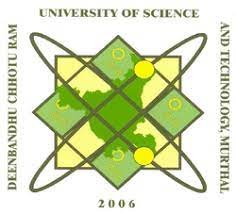Explore the promising future of M.Tech in Energy and Environmental Management. Unlock career opportunities and contribute to a sustainable world.
Future Scope & Benefits of M.Tech in Energy and Environmental Management
A Master of Technology (M.Tech) in Energy and Environmental Management is a specialized academic program that equips students with the knowledge and skills needed to address critical issues related to energy sustainability and environmental conservation. In an era where concerns about climate change, resource depletion, and environmental degradation are at the forefront of global discourse, this field is gaining increasing importance. This article delves deeper into the details of the program, its future scope, and the benefits it offers to individuals and society as a whole.
Program Details
M.Tech in Energy and Environmental Management programs are structured to provide students with a comprehensive understanding of the interplay between energy systems and environmental sustainability. The curriculum typically comprises a mix of core and elective courses, covering a wide range of topics. Here are some key aspects of the program:
1. Core Courses: These courses form the foundation of the program and often include subjects like energy conservation, environmental management, sustainability principles, and environmental regulations. These core courses ensure that students develop a solid understanding of the fundamental concepts in energy and environmental management.
2. Elective Courses: The program allows students to tailor their education to their specific interests and career goals by offering a variety of elective courses. These may cover topics such as renewable energy technologies, environmental impact assessment, waste management, green building design, and sustainable transportation systems. Elective courses provide students with the opportunity to specialize in areas that align with their passions and career aspirations.
3. Research Opportunities: Many M.Tech programs include a research component, where students undertake projects or thesis work related to energy and environmental management. These research opportunities allow students to apply their knowledge to real-world challenges, contribute to the field's advancement, and gain practical experience.
4. Duration: Typically, an M.Tech in Energy and Environmental Management is a two-year program. The first year is usually dedicated to coursework, while the second year may involve research or a capstone project. Some programs may offer shorter or more extended durations based on their specific curriculum and requirements.
Future Scope
The future outlook for graduates of M.Tech in Energy and Environmental Management programs is promising, given the pressing global need for sustainable practices and energy solutions. Here are some key factors contributing to the program's future scope:
1. Growing Awareness: There is a growing awareness of environmental issues and the need to transition to sustainable energy sources. Governments, businesses, and individuals are increasingly recognizing the importance of addressing these challenges, creating a demand for experts in energy and environmental management.
2. Legislative Changes: Governments worldwide are enacting stricter environmental regulations and incentives to promote sustainable practices. This has led to a surge in demand for professionals who can help organizations navigate these complex regulatory landscapes and implement eco-friendly policies.
3. Renewable Energy: The transition to renewable energy sources, such as solar, wind, and hydroelectric power, is a significant driver of job opportunities in this field. As the world seeks to reduce its reliance on fossil fuels and combat climate change, experts in renewable energy technologies and management are in high demand.
4. International Relevance: Energy and environmental issues are global concerns that transcend borders. Graduates of M.Tech programs in this field have the opportunity to work on international projects and collaborate with organizations worldwide to address climate change, sustainable development, and environmental conservation.
5. Research and Innovation: The field of energy and environmental management is dynamic and continually evolving. Graduates with strong research skills and innovative thinking can contribute to groundbreaking discoveries and advancements in sustainable technologies.
Benefits
Pursuing an M.Tech in Energy and Environmental Management offers numerous benefits, both on a personal and societal level:
1. Environmental Stewardship: Graduates play a crucial role in promoting environmental sustainability and reducing the ecological footprint of industries and communities. They have the opportunity to be at the forefront of efforts to combat climate change and protect the planet's natural resources.
2. Career Versatility: The interdisciplinary nature of the program equips graduates with a diverse skill set that is highly transferable across various sectors. This versatility ensures job security and provides opportunities for career advancement in a rapidly changing job market.
3. Competitive Advantage: Organizations across industries are increasingly seeking professionals who can help them adopt sustainable practices and meet regulatory requirements. Graduates of energy and environmental management programs are well-positioned to fulfill these roles, giving them a competitive edge in the job market.
4. Personal Fulfillment: For individuals passionate about environmental conservation and sustainable energy, working in this field can be personally fulfilling. It allows them to align their careers with their values, knowing that their work contributes to a better and more sustainable future.
In conclusion, an M.Tech in Energy and Environmental Management offers a holistic educational experience that prepares individuals to address some of the most pressing challenges of our time. The program's interdisciplinary nature, coupled with its relevance in today's world, ensures that graduates have a wide range of career opportunities and the chance to make a meaningful impact on the environment and society. As the world continues to prioritize sustainability and environmental stewardship, the future looks bright for those who choose to pursue this field of study.
 2 Years
2 Years
 Post Graduate
Post Graduate
 Engineering
Engineering
 Full Time
Full Time





















 back
back

